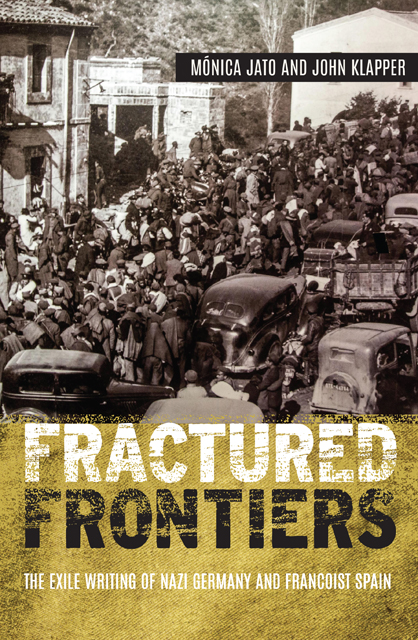3 - German Historical Narratives in Inner and Territorial Exile
Published online by Cambridge University Press: 18 January 2023
Summary
The roots of historical fiction in Germany can be traced to the eighteenth century, ever since when, with varying degrees of intensity, it has been a favored fictional form: one extensive study documents 6,700 historical novels between 1780 and 1945. Following slender beginnings at the end of the eighteenth century and the rather more productive nineteenth century, there was a marked increase in historical writing from the mid-1920s, leading to a sudden upsurge after 1933, which at its height in 1936 saw 169 works published, and in 1937 a further 167 appeared. For the period 1933–45 a total of around 1,400 published historical novels are recorded.
The long-held assumption that 1933 was a caesura that decisively defined the outlook and status of all writers has been contested (see chapter 1). Similarly, it would be inaccurate to suggest that historical fiction was a peculiarly post-1933 genre, encouraged and defined by the specific political and social circumstances of National Socialism. In fact, ever since the end of the First World War, amid the uncertainties caused by revolution, the demise of monarchies, and the birth of republics, both authors and readers had rediscovered a strong interest in history. Contemporary economic, social, and political upheaval had made clear that people’s everyday lives were directly affected by historical events, causing many to turn for insight into or explanation of present turmoil to similar historical periods or comparable human experiences, as depicted in novels and essays portraying completed and thus more readily comprehensible events. This new historical awareness was prompted, in part, by works such as Spengler’s Der Untergang des Abendlandes, which saw in historical fiction not a source of distance but a means of describing contemporary problems and experiences, and in part by the general sense of crisis that enveloped intellectual life around the year 1930.
Writers across the ideological spectrum began to look to the past either to escape a chaotic present or to exercise criticism of contemporary developments. Behind their use of historical material to explore the present lay a conception of history either as cyclical and repetitive or as an endlessly rich repository of counterimages.
- Type
- Chapter
- Information
- Fractured FrontiersThe Exile Writing of Nazi Germany and Francoist Spain, pp. 78 - 109Publisher: Boydell & BrewerPrint publication year: 2020



